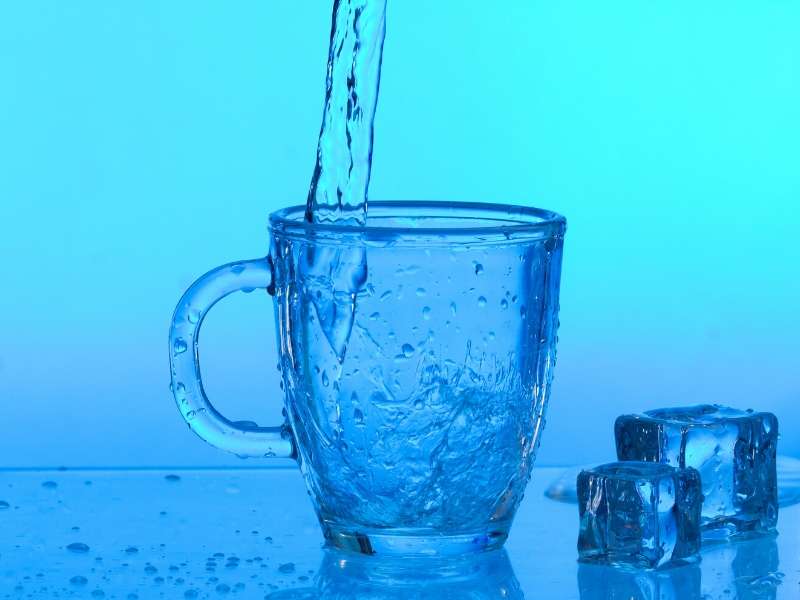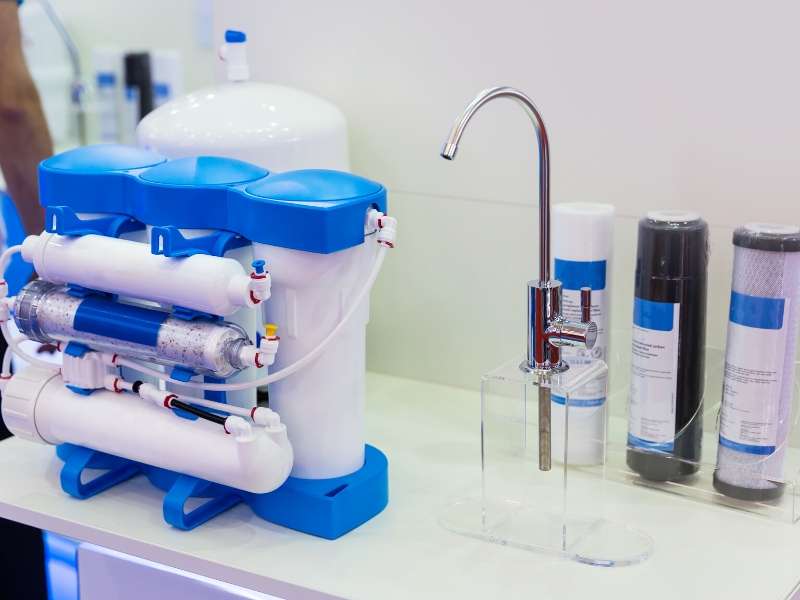The topic of water filters that remove bacteria might not be at the top of your list for your home design, however, it is an important part of many homes. With an increase in health awareness, people all over the world are looking for healthier food and beverage options however, our primary source of hydration remains fresh H20.
So With multiple reports on contaminated water flowing through our plumbing systems, we must make sure we are digesting clean water. This topic concerns everyone, so continue reading to learn what you must know about selecting the right bacteria water filters or purifiers that remove bacteria and viruses.
Guideline for Selecting the Right Water Filters

⎆ Testing Your Water
When homeowners do a simple home test on their tap water, they’ll find a variety of toxic substances within the source. Pollutants like
- cysts,
- viruses,
- chlorine,
- bacteria,
- pesticides,
- and harmful strong metal residues have been detected in some home systems.
Bacteria found in unfiltered water can cause harmful damage to individuals who don’t have a strong immune system. So People who are most at risk, are usually elders, younger children, those with other serious medical conditions, and pregnant women.
Toxic micro-organisms, that aren’t visible to the eye, can cause horrible medical outbreaks. One of these examples is the transferal of cholera, a waterborne disease found in bacteria inside unfiltered waters.
Click here to learn more about potential bacteria found in unfiltered H2O.
Even though H2O companies do take a multitude of measures to ensure that their water is clean, it will be wise to invest in further water filters to be safe. So We’ve scouted a bunch of reviews to find the best information on water filters specifically designed to remove viruses and bacteria.
If you are looking around for decent water filters that can remove impurities and bacteria from your drinking water, then here are a few things you have to know about water filters for your home.
⎆ What Is the Purpose of Water Filters?
The main purpose of filters or best water purifiers is that it removes and reduces concentrated formulations of particulate matter. Particles that haven’t been removed by water companies can now be further removed using an in-house filtration system.
Harmful particles that can be reduced and removed include a variety of
- viruses,
- parasites,
- bacteria,
- fungi,
- and algae.
So A drinking water filtration system can also remove contaminations that happened during the company processing procedure. Therefore, by using water filters, H2O will be cleaner and safer for drinking.
⎆ How Do Filters Work?
There are two kinds of water filtration systems using two different techniques:
- Physical
- Chemical
Physical systems use different kinds of obstructions through which water flows. It acts as a like sift. It can either be pebbles, gauze, or a thin membrane through which the liquid has to flow.
Chemical systems use an active material that removes toxins, viruses, bacteria, and other impurities through a chemical process. As H2O passes through the material, a chemical reaction (typically carbon) will remove bacteria that aren’t detectable with a physical system.
Water that moves through
- sand,
- gravel,
- charcoal,
- and vegetation will come out in a pure form.
The variety of substances it had to flow through creates a sort of filtration system. Scientists have tried to mimic this effect on a smaller scale, bringing it into our homes.

⎆ Types of Water Filters
There are four main types of filtration systems:
Reverse Osmosis
This system uses a pressure technique. As the liquid moves through a thin membrane, toxins like iron, lead, metal, and mercury are sifted out.
So This kind of system isn’t viable in removing chlorine, bacteria, pesticides, or radon.
AquaOx Virus Water Filter
The AquaOx Virus Water Filter uses an additional UV quantum disinfection technology to purify and remove harmful bacteria.
Steam Distillation
A natural technique that uses a cooling steam system, this process removes contamination and harmful properties. The steam that’s created doesn’t contain any impurities.
As it drifts up the contaminants stay behind. Steam is cooled and then captured as clean drinking water.
Ion Exchange
A chemical process that softens harder H2O particles. Using sodium and other ion molecules to exchange with harmful metals.
So This process, although effective, raises the sodium content in water. This means that if you’re on a low-sodium diet, this kind of filtration system won’t benefit you.
We have also reported that purifying companies that use ion exchange add too many ion molecules, creating a salty taste and leaving the drinker thirsty.
Carbon Filter
Using a physical system, the carbon filtration system typically uses charcoal as a porous material to sift H2O. Toxins and harmful bacteria are trapped within the porous carbon and sometimes even attracted.
Once H2O touches carbon substances like charcoal, a chemical reaction occurs which reduces chlorine.
⎆ Which Filtration System Is Best for Removing Bacteria?
Which water purifier is best? We have proven that a system that uses reverse osmosis (Reverse osmosis water filter) is the most effective in removing bacteria. So It should thoroughly disinfect H2O through ultraviolet radiation or chlorination.
So Investing in a drinking water filtration system or a tap water filter that cleans tap water is highly beneficial. Always consult experts in the industry to make sure that you are purchasing the right filtration system to keep your family healthy and safe.
Related Post:
Images Courtesy of Canva.
4 Top Reasons Why You Need To Invest in Home Renovation
Some Fun & Amazing Ways To Enjoy Your Deck
Benefits of Using Steam Cleaners To Sanitize Your Home
Carpet, Tiles, and Hardwood: Which Flooring is Right For You?





